|
Click on
the pictures to enlarge them.
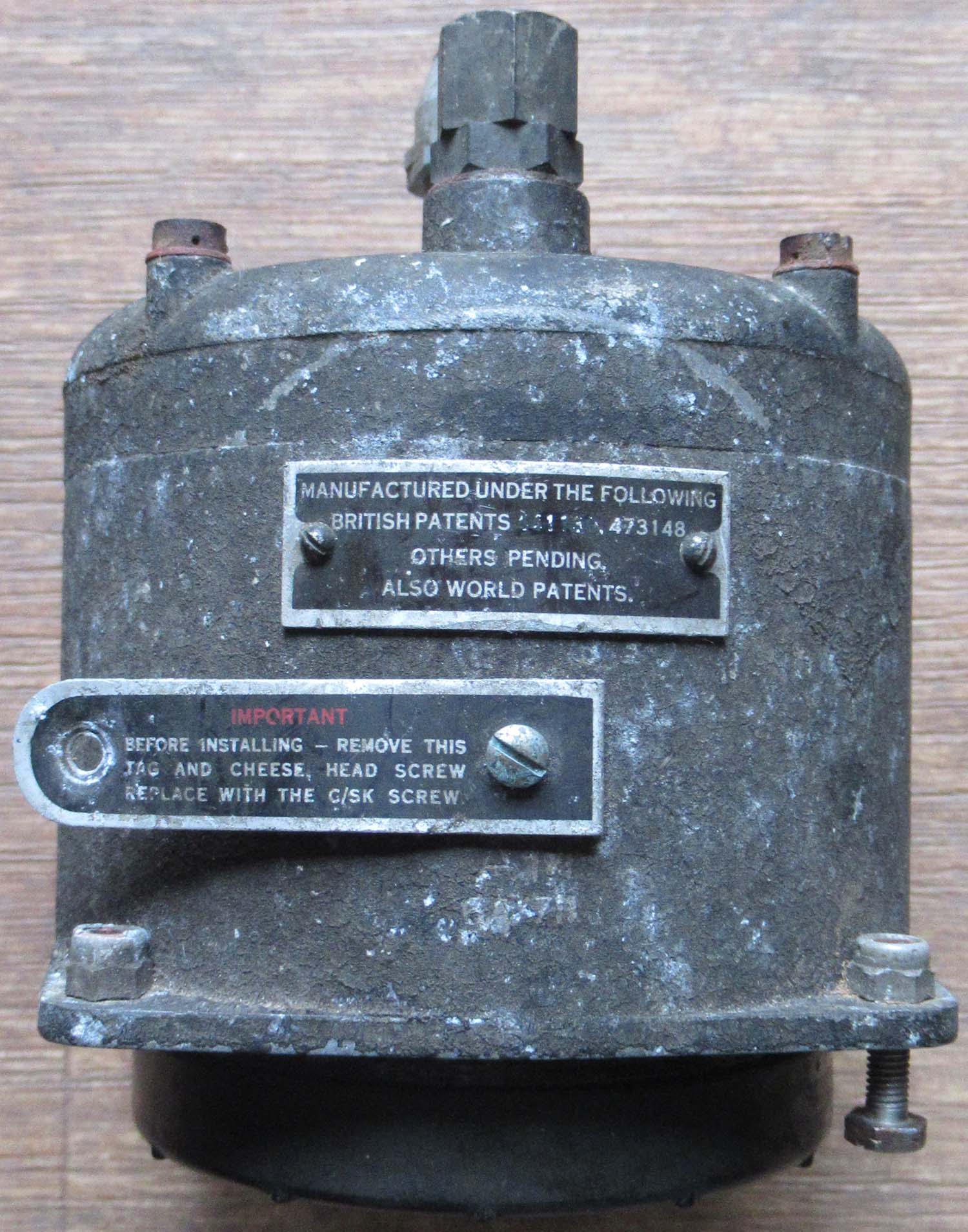
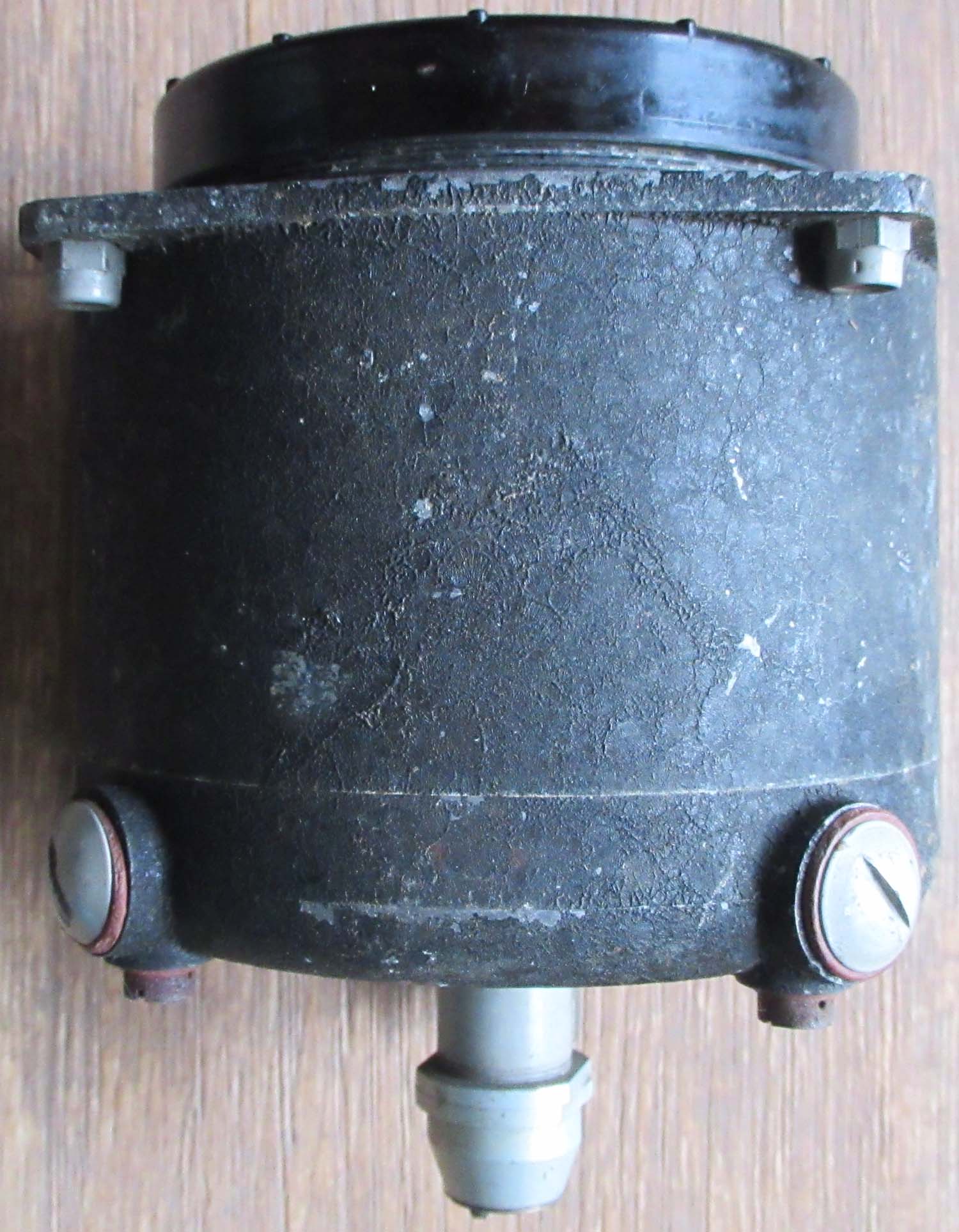 |
Pre War MK II Artificial
Horizon (Instruments pg 7 directional indicators and Art Horizon 16)
This is a super rare a rtificial
horizon MK II.
This is only
the second one I have had for sale in
the last 20 years. Used in the 1930's interwar years.
It is
designed to be interchangeable on the instrument panel of the
MK I and its frontal dimensions are the same
although it is of a completely different design.
The horizon
plate and the front glass are spherical. It is possible that
some of these instruments were in use at the start of the
war in second line or obsolete aircraft.
The one I
had previously was dated 1936 and also had the reference
number 6A/711
this one does
not so I'm guessing it is one of the early prototypes.
Click on
the pictures to enlarge them.
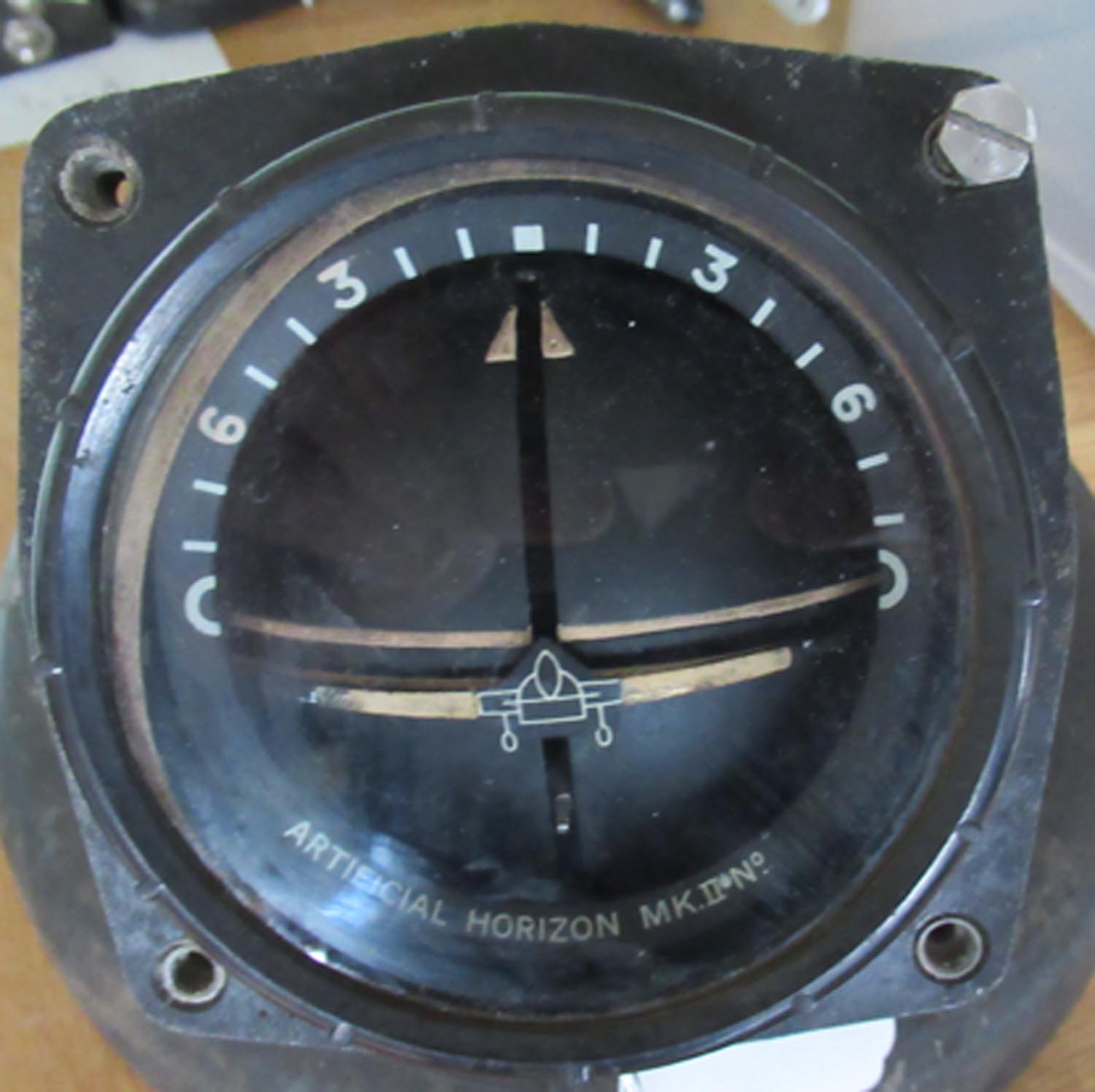
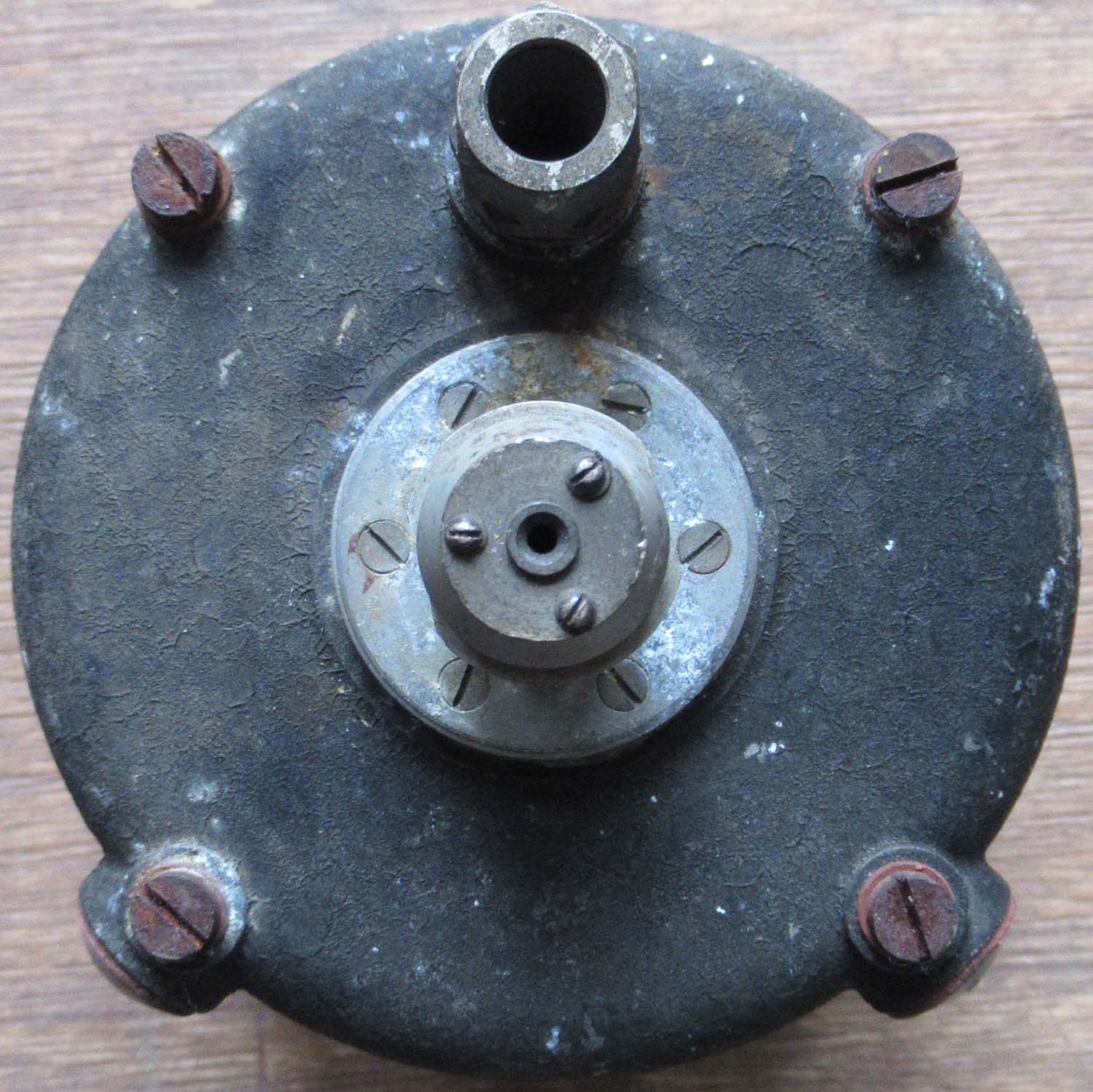
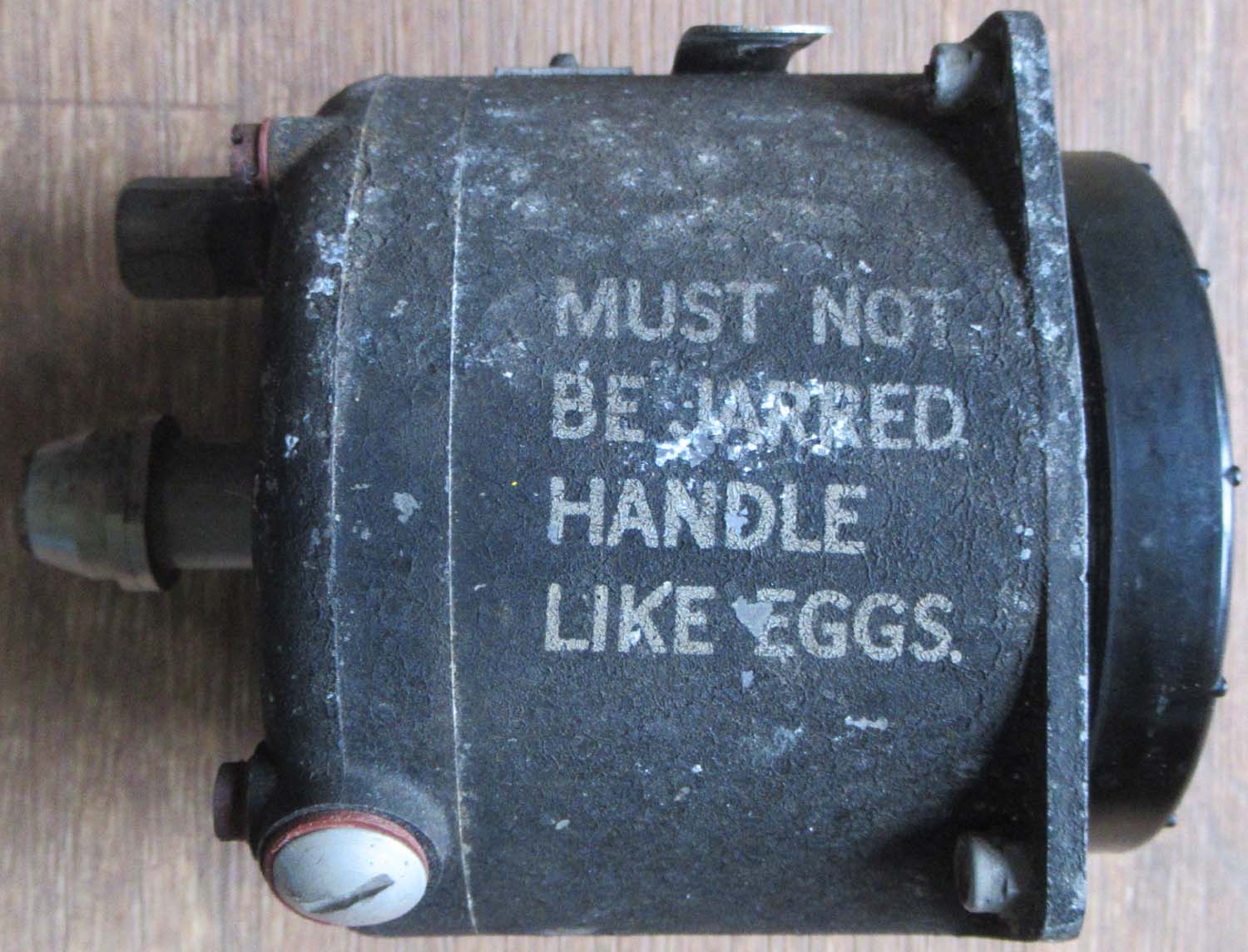
£ 795


|
|
Click on
pictures to enlarge
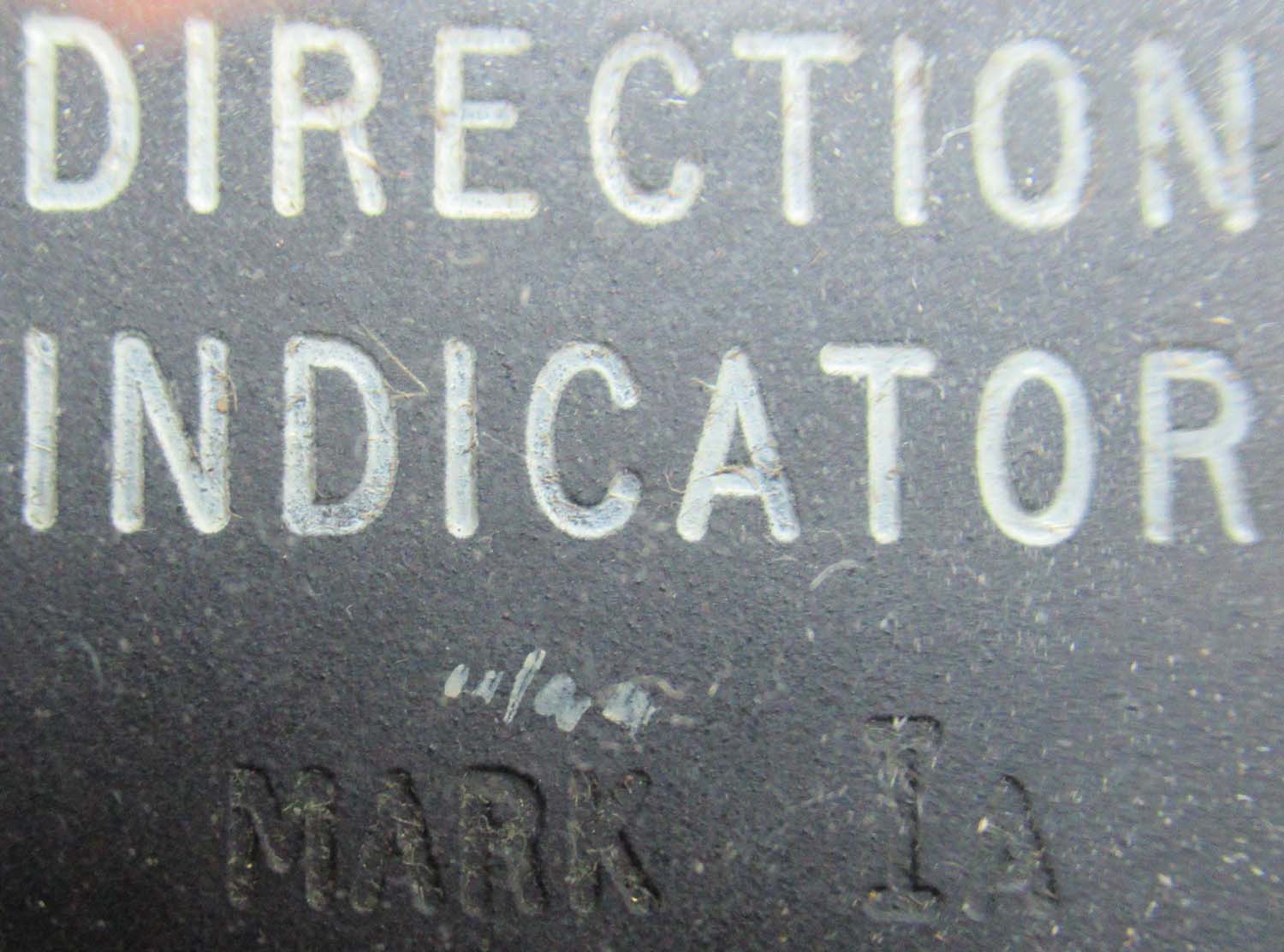
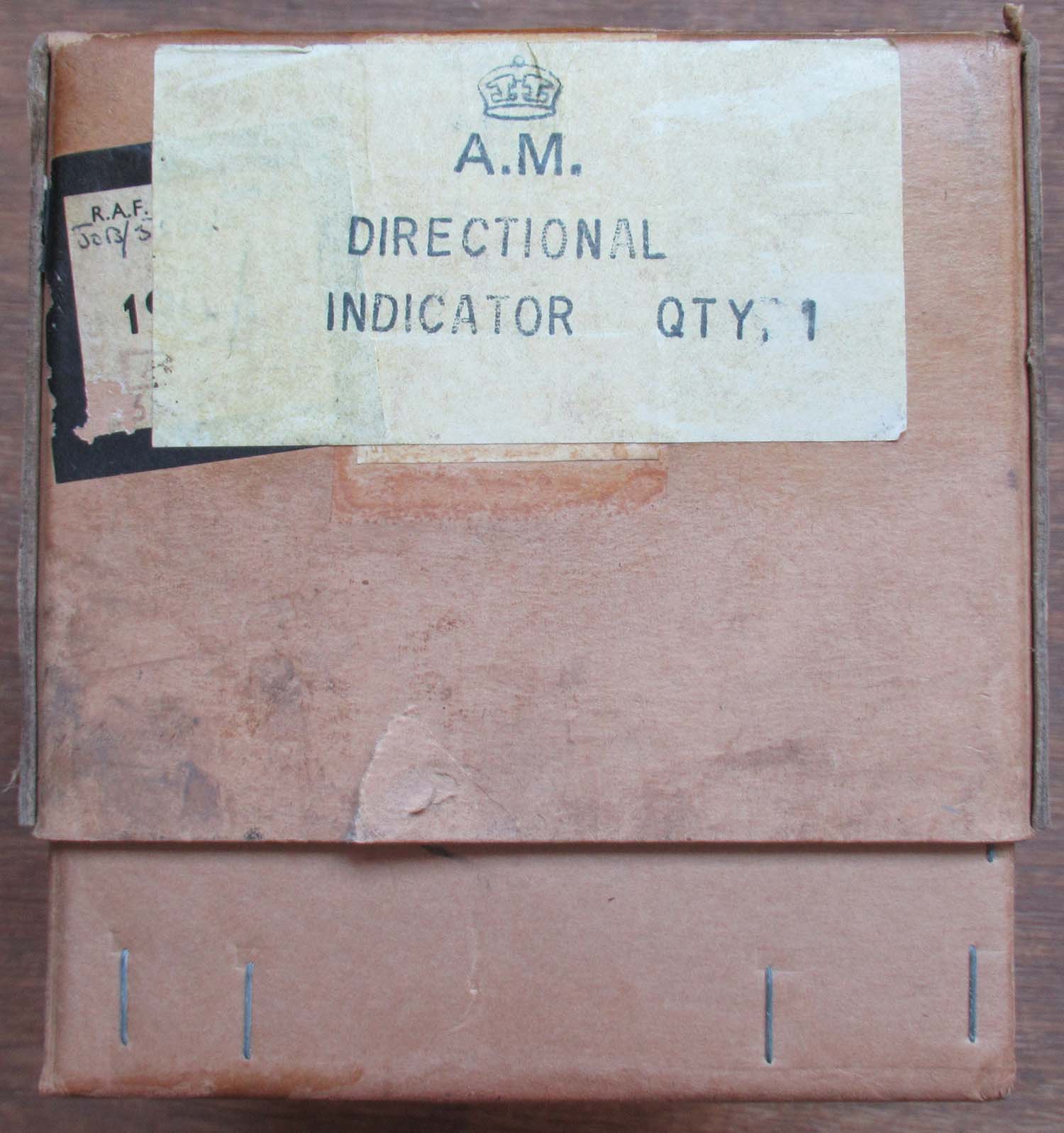
£195

 |
Artificial
Horizon Instrument MK IA 6A/1209 (Inst pg 7 Directional
Indicators & Art Horizon 21)
A nice
Mark IB artificial horizon instrument in its box. Dated 1943.
Service date of 1944
Ref No:
6A/1209
17070/43
Click on pictures to enlarge
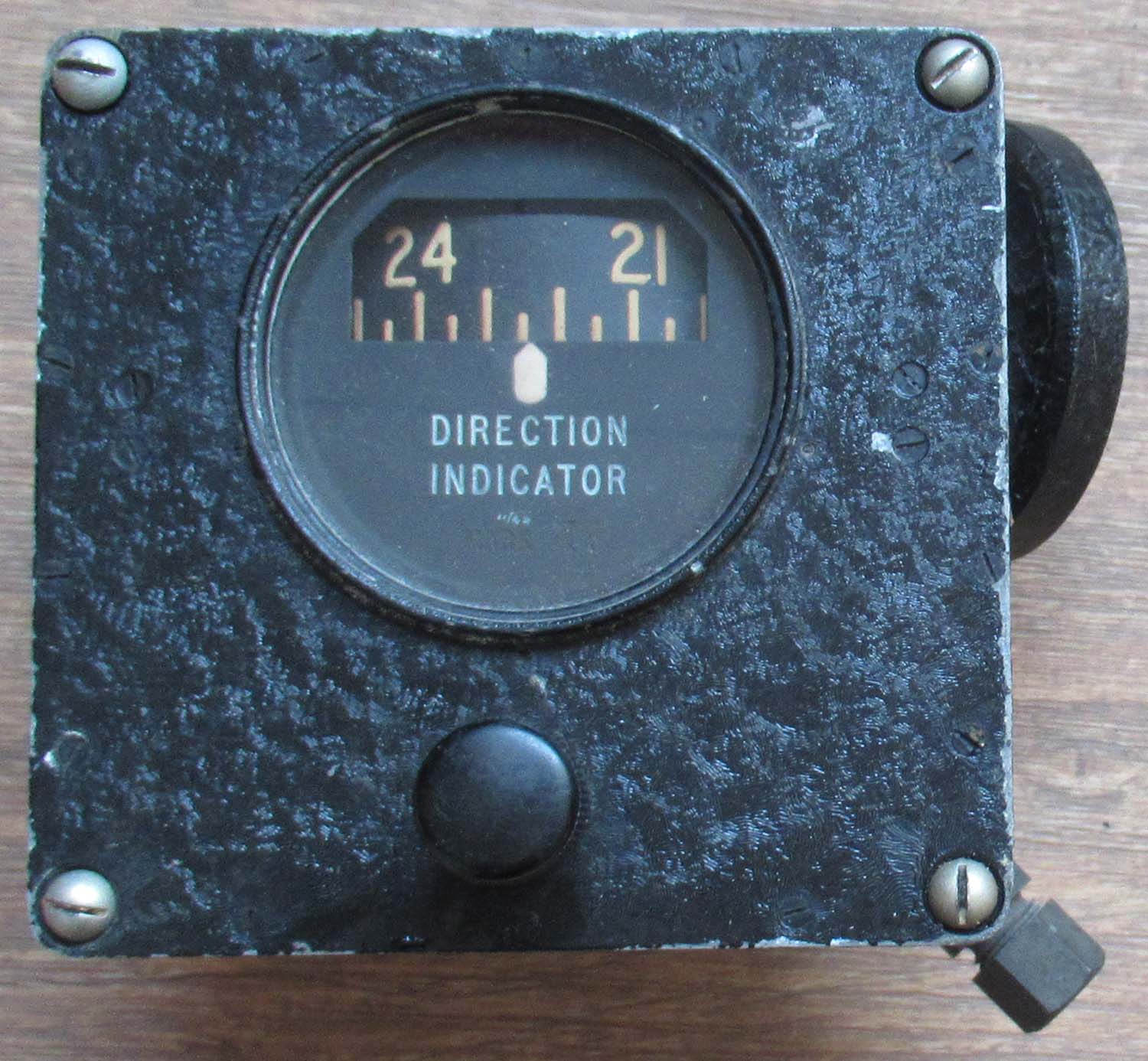
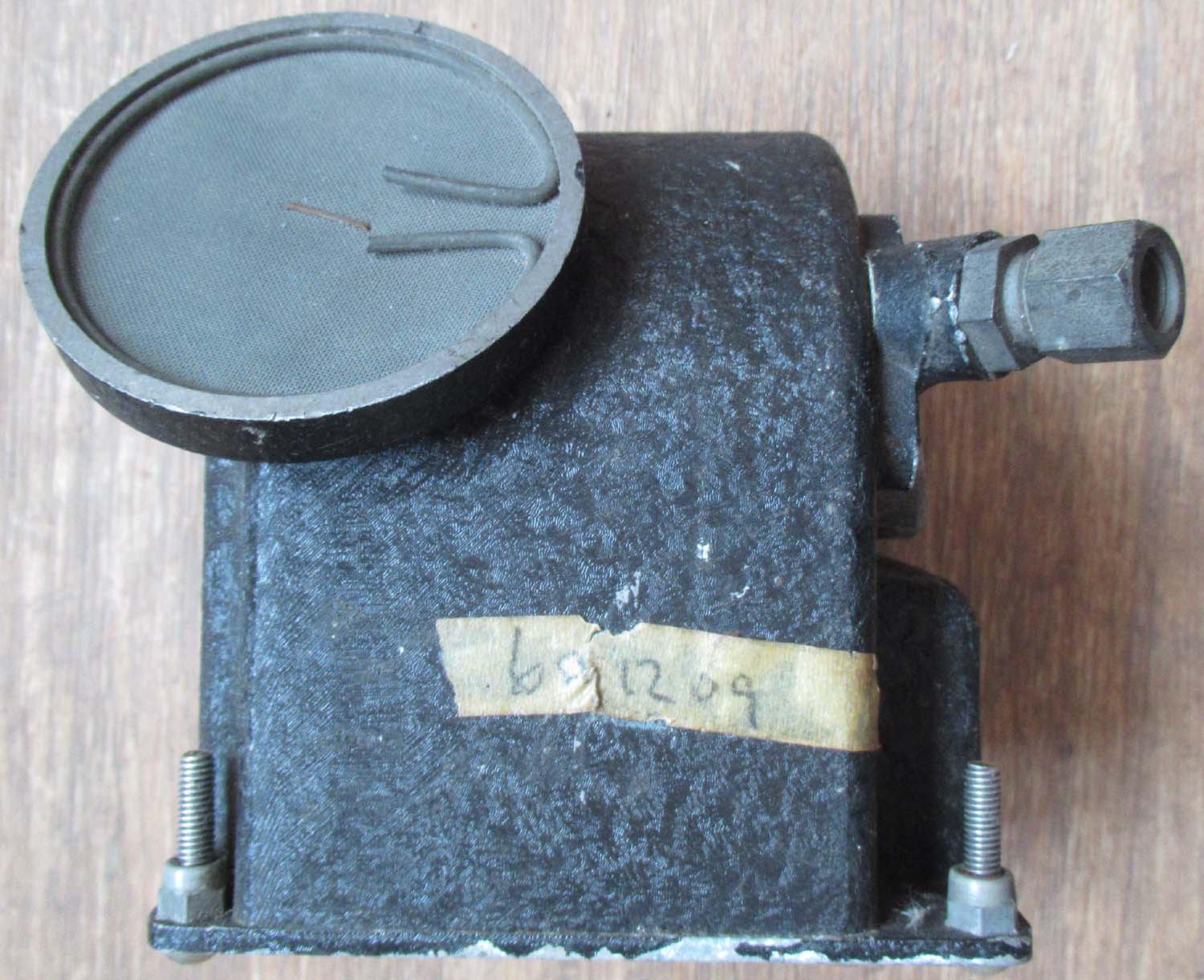
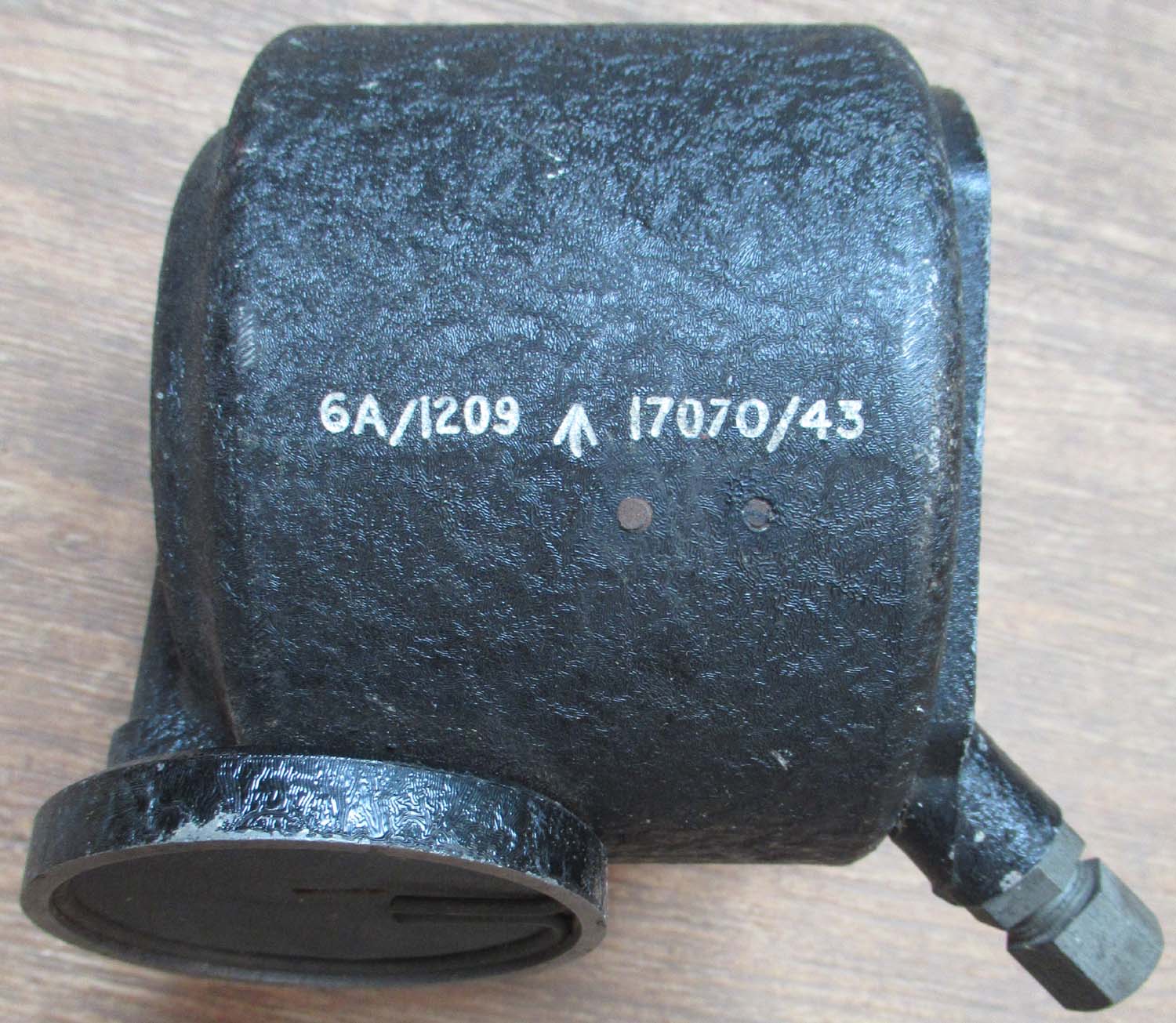
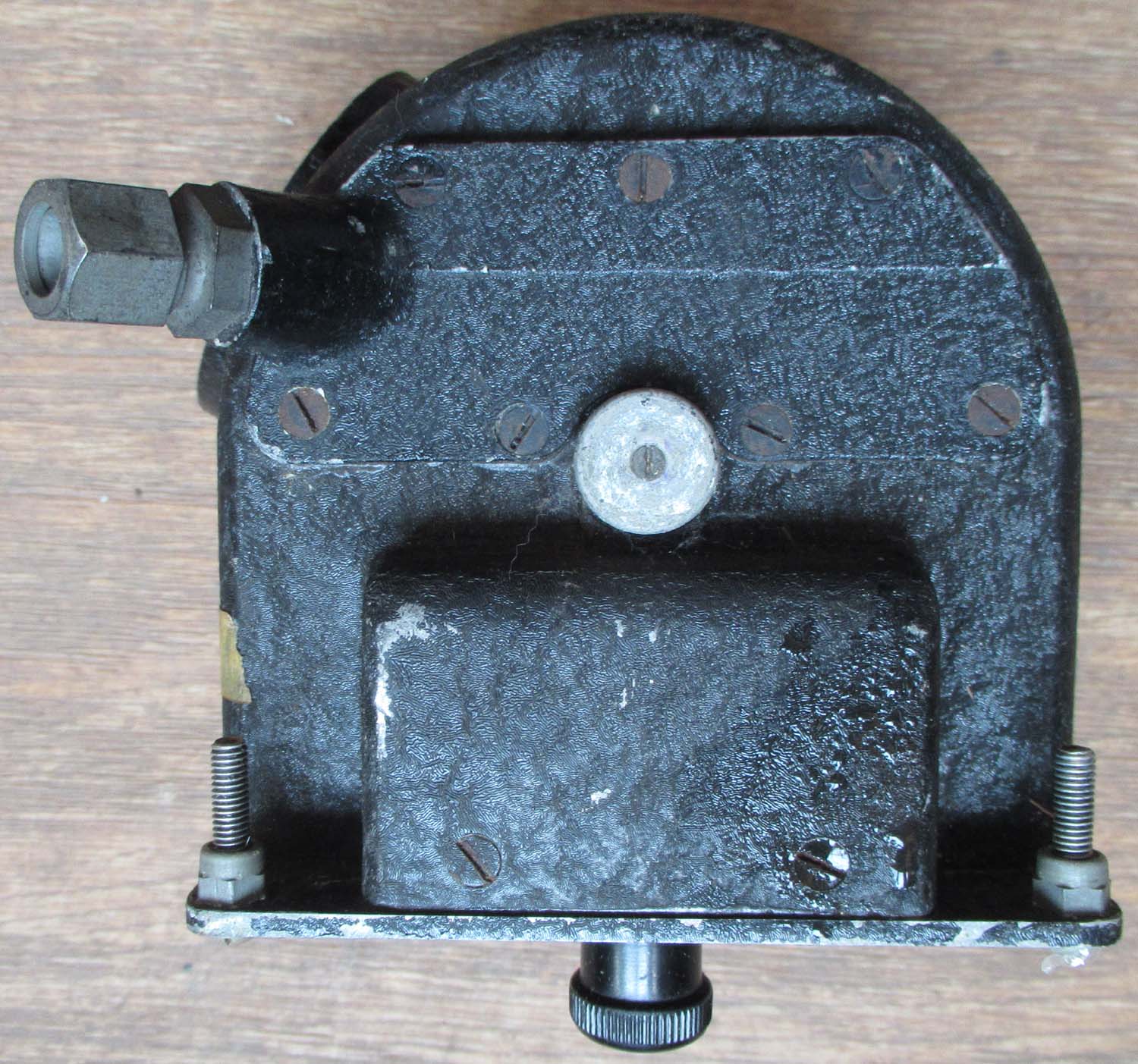
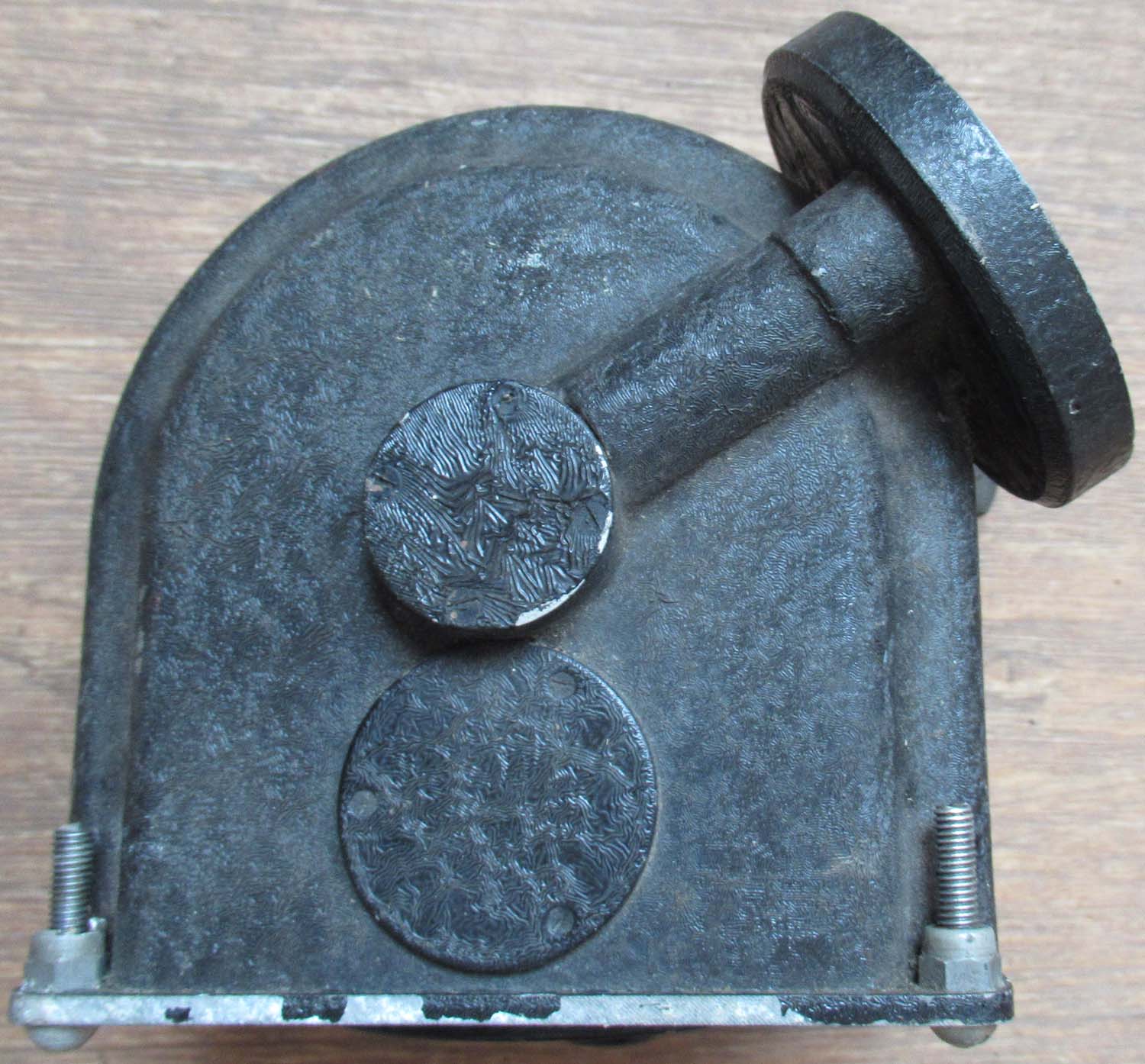 |
|
Click on
pictures to enlarge



 |
Artificial
Horizon Instrument MK IB 6A/1519 (Inst pg 7 Directional
Indicators & Art Horizon 20)
A nice
Mark IB artificial horizon instrument.
Ref No:
6A/1519
Ser No:
1805/52
Click on pictures to enlarge
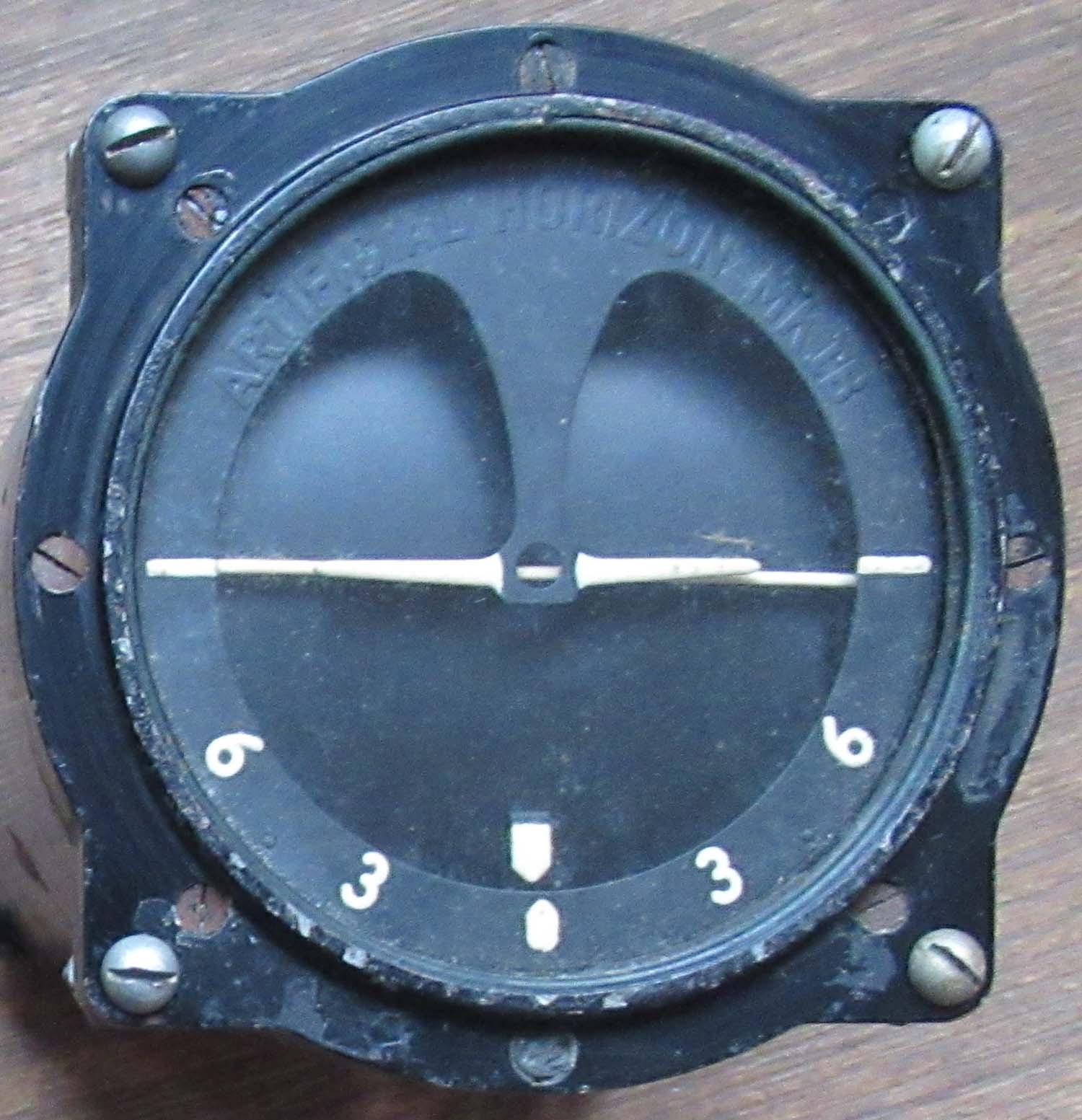

 

£65


|
|
Click on
pictures to enlarge



|
Bank-Climb Gyro
Control US MK 4 Auto Pilot (Instruments pg 7 directional indicators
and Art Horizon 19)
A really nice
Mark 4 Automatic Pilot manufactured by The Electric Auto-Lite
Co. Toledo, Ohio.
The U.S. Army Air Corps and the U.S. Navy experimented with
autopilots on military aircraft before and during World War
II.
Straight and level flight had become a necessity for new
level bombing techniques that were being developed at the
time.
The Sperry Gyroscope Company developed many autopilot
systems for use on military aircraft. When the Boeing B-17
Flying Fortress was delivered in the late 1930s, it came
equipped a commercial Sperry A-3 Autopilot.
The A-3 was a simple autopilot and only corrected angular
deviations in the aircraft's straight and level course. It
utilized pneumatic hydraulic servos, which had a tendency to
react slowly to inputs, and this often led to
overcompensation of the aircraft's corrected course.
This
caused navigation and control issues when pilots were flying
in poor weather or rough air.
This Bank Climbing Gyro was utilized on the Sperry Mark 4
Autopilot System. This autopilot system was used in versions
of the WWII medium bomber B-25 Mitchell, patrol bomber PBY
Catalina, fighter.
656503 F.S.S.C. 88-P-525
Click on pictures to enlarge






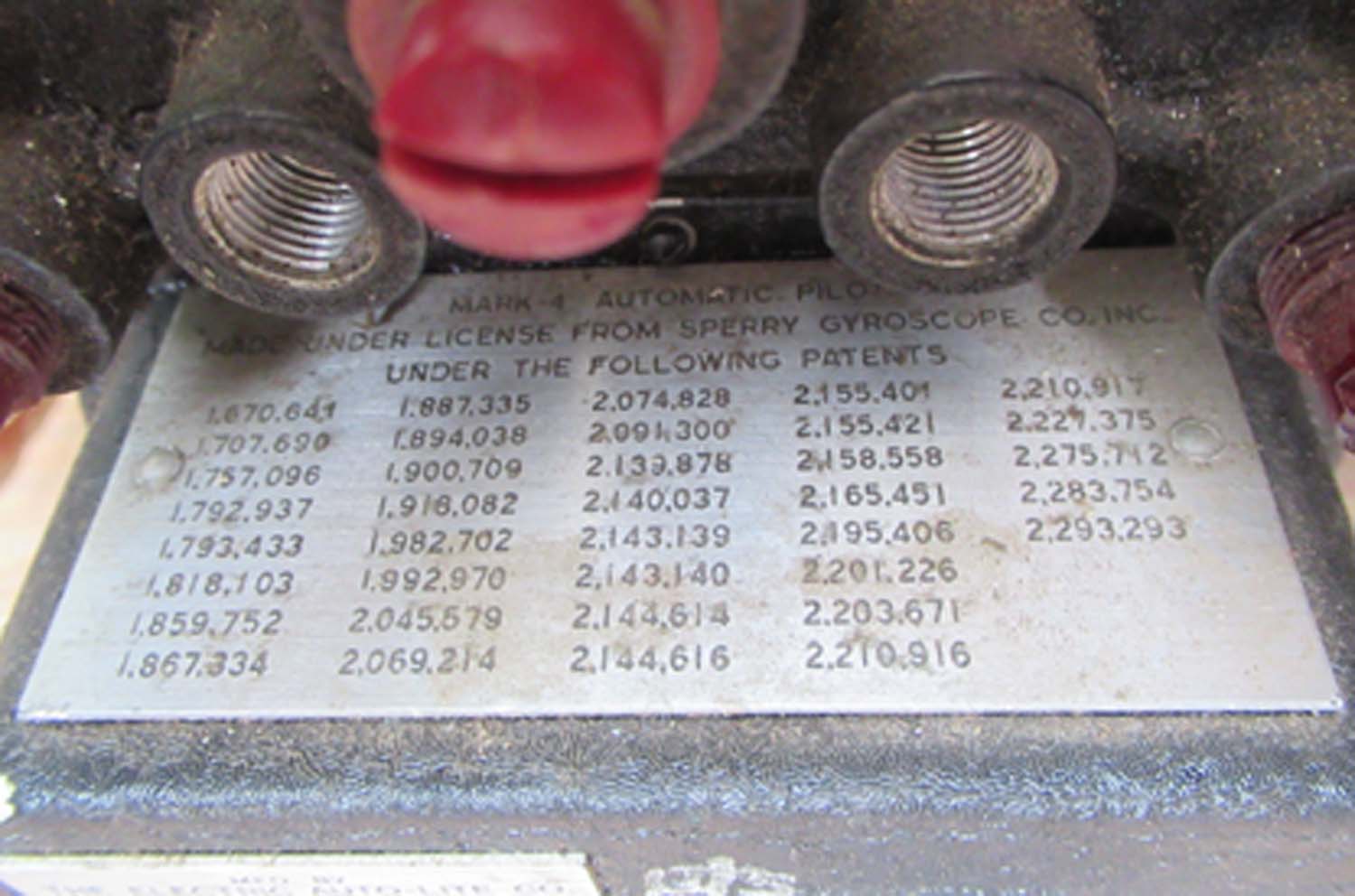 £295


|
|
Click on
the pictures to enlarge them.


|
Mk I Dated 1941
Artificial Horizon (Instruments pg 7 directional indicators
and Art Horizon 18)
A really nice
early Artificial horizon used in
practically all types of RAF wartime aircraft in good
original condition.
The case has
some paint loss but the face is good please enlarge the
pictures to asses for condition. The MK I s are extremely hard to find
and i have only seen a handful in the last 20 years.
It
took forever to get the two horizontal lines to appear for
the picture but if you are using it for display its easy to
remove the glass which is held by a circular clip and they
could be fixed in place, if its going to a flying aircraft
it will need an overhaul .
6A/599
Dated 1941
Click on the pictures to enlarge them
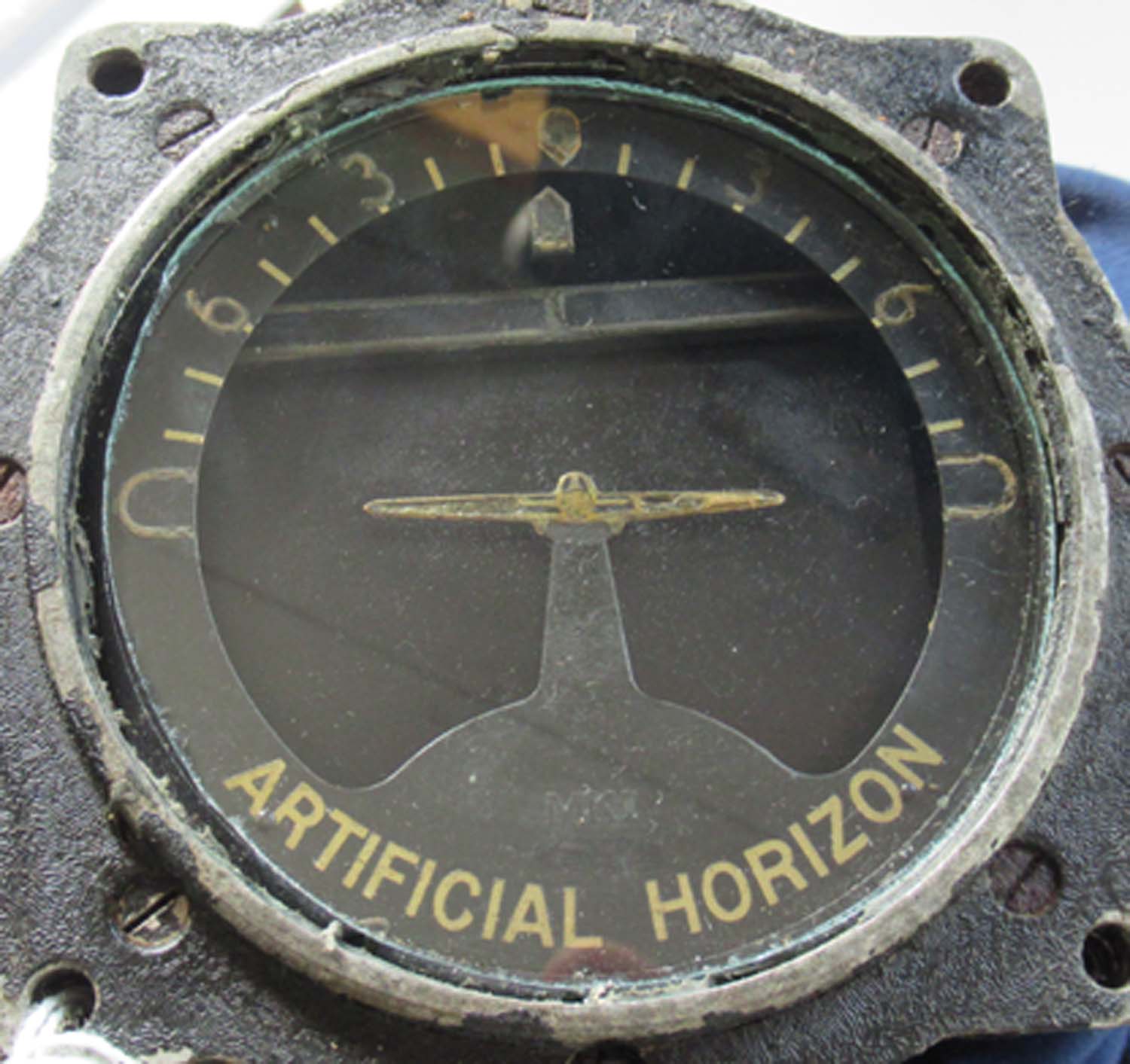
 £395


|
|
Click on
the pictures to enlarge them.

 £395


|
Luftwaffe
Artificial Horizon FL 22426 (Instruments pg 7 directional indicators and Art Horizon 17)
Here is a
Luftwaffe artificial horizon in good original condition.
Used in a huge range of aircraft from around 1943 to the end
of the war .
Fitted to the
BF 110. JU 88. JU 52. HE III. DO 24. and like the British
version probably used in nearly all Luftwaffe wartime
aircraft .
Click on
the pictures to enlarge them.

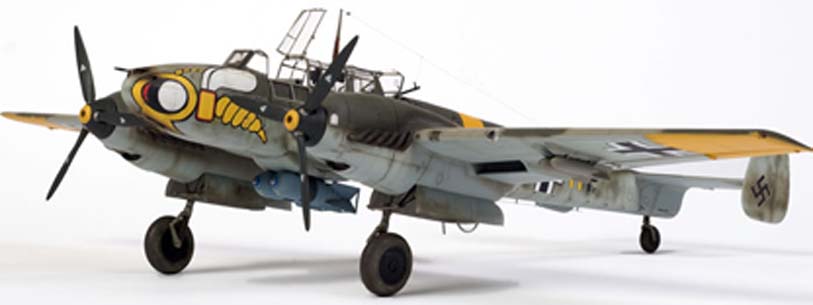

Shown above
the BF 110.
The Messerschmitt Bf110 originally was designed as three
seat strategic fighter that had the task of clearing the way
for the bomber formations that followed.
Soon to become known as the Zerstörer (the Destroyer) they
made their presence felt during the early part of the Battle
of Britain when the Luftwaffe began their attacks on the
Channel convoys.
But even at the hands of hand picked elite aircrew, the
Bf110 was to prove no match for the Hurricane or Spitfire
and soon started to succumb heavy losses.
Soon, BF 110 formations were to be escorted themselves by
Gruppes of BF 109s and even though the elite
Erprobungsgruppe 210 had many major successes, the BGF 110
which started out as a fighter escort was relegated to the
role of a fighter bomber and night fighter after the Battle
of Britain.
|
|
Click on
the pictures to enlarge them.
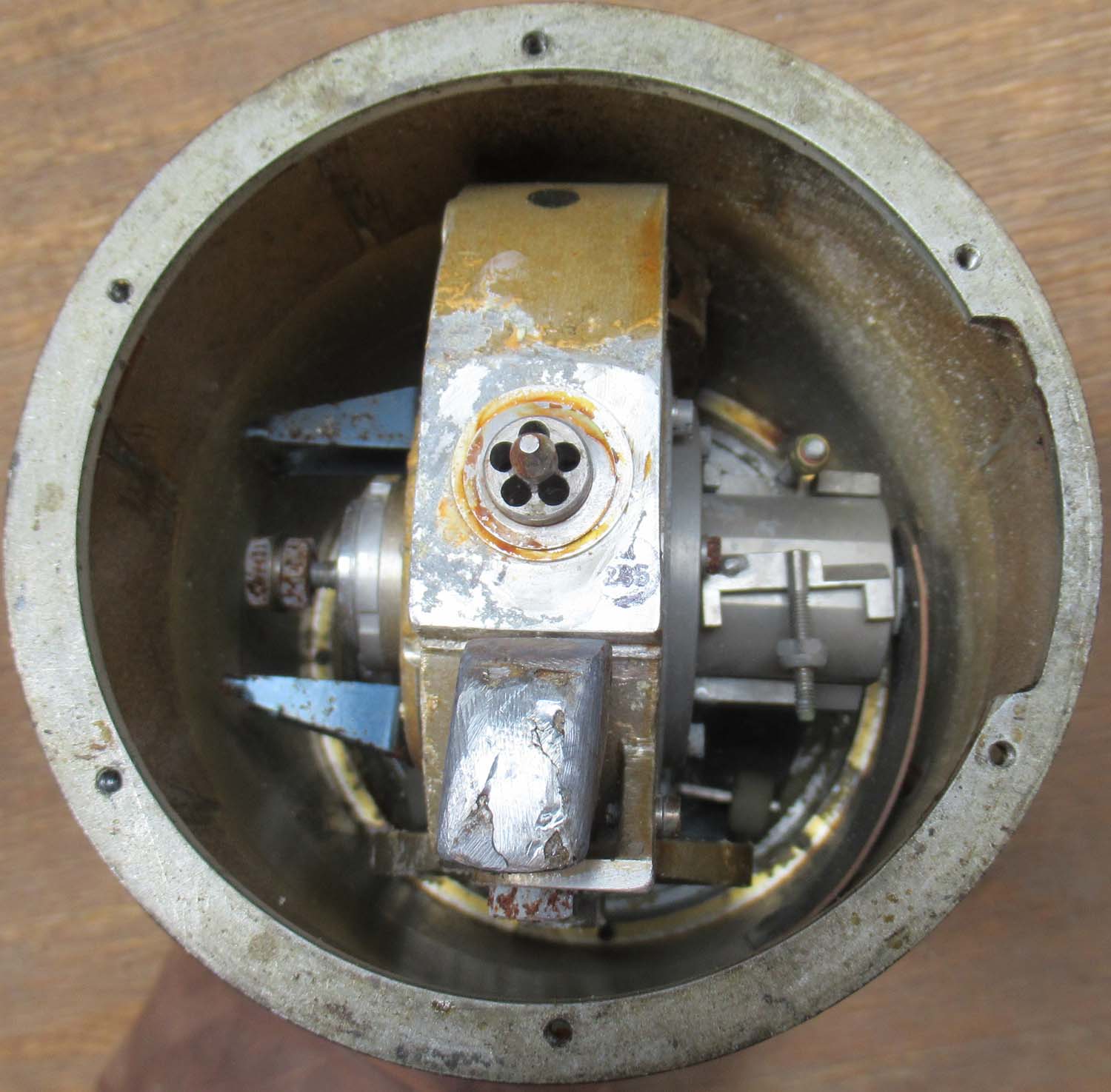
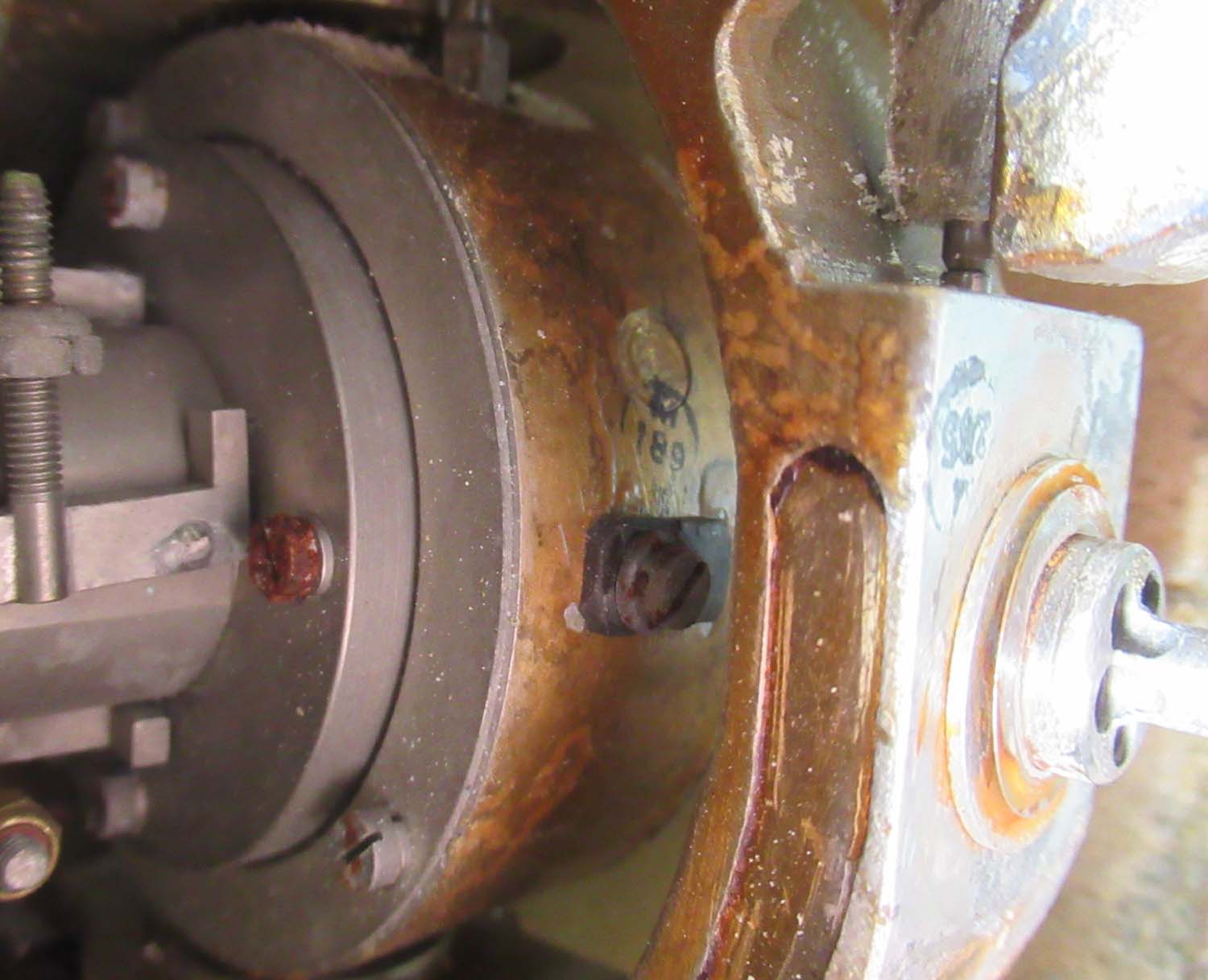 |
Spitfire MK IB Artificial Horizon (Instruments pg 7 directional indicators and Art Horizon 15)
This came with a
collection of instruments all fitted to Spitfires from
Denmark although damaged this did fly in a Spitfire.
Click on
the pictures to enlarge them.
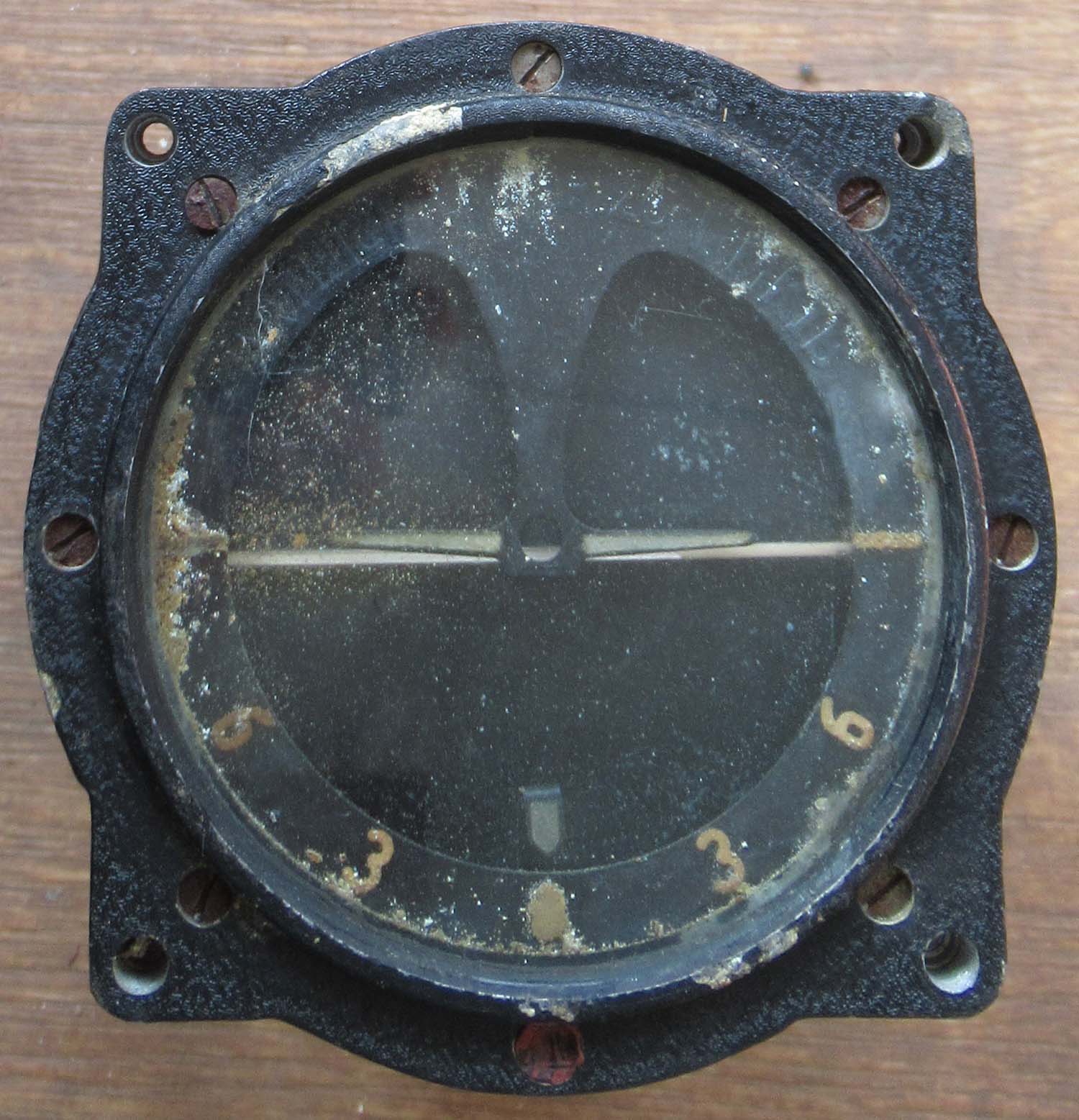
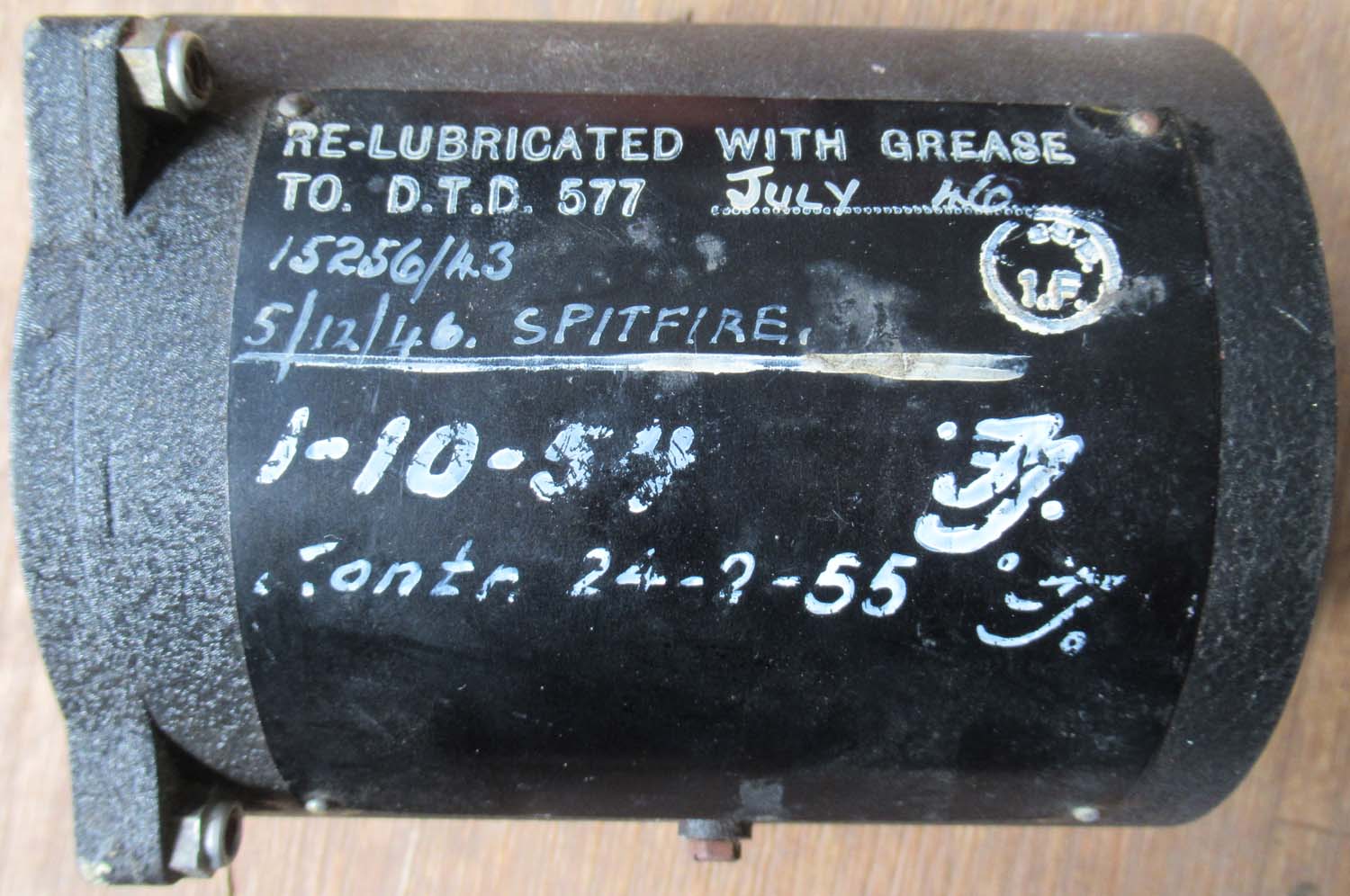
The Danish armed forces received 38 surplus Supermarine Spitfire H. F. Mk. IXE[7] and
3 P.R.Mk. XI in 1947-48[8]
plus four additional airframes for ground instruction, which
were operated by units of the Hærens Flyvertropper and
Marinens Flyvevæsen prior to their merger, and by the Royal
Danish Air Force until 1956 when the last examples were
retired and all but two scrapped.
£ 125


|
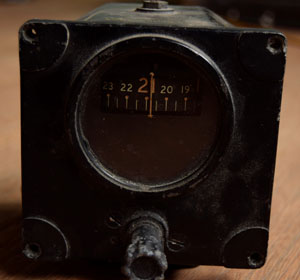
Click on
the pictures to enlarge them.
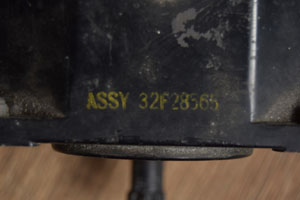 |
Directional Gyro AN 5735-4(Instruments pg 7 directional indicators and Art Horizon 1A)
Directional Gyro used in blind flying panels of
WWII aircraft of the US Navy such as fighters F4F
Wildcat, F4U Corsair, and F6F Hellcat. The knob on this one
is seized and will not move.
Click on
the pictures to enlarge them.
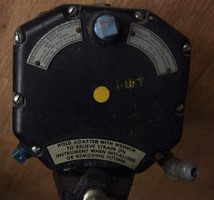
£ 95


|
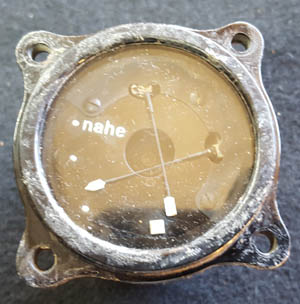 Click on
the pictures to enlarge them.
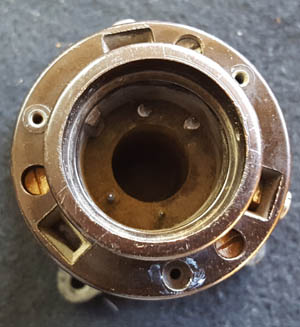 |
WW2 German AFN2 Ln.27002
Radio Homing Indicator
(Instruments pg 7 directional indicators and Art
Horizon 2)
Here we have a AFN2 radio homing indicator its clearly
been used but appears to be in good original condition
please enlarge the pictures .
The AFN2 possesses 2 pointers, both horizontal and
vertical. When the aircraft is in-line on a direct course
to base, the first needle (vertical) sits exactly upright,
in-line with the square marking on the bottom. The second
needle (horizontal) indicates the distance of the airplane
to the transmitter (radio beacon). When flying over the
transmitter the horizontal needle points in-line with the
middle marking on the left. When flying directly over the
transmitter the fluorescent lamp (Fl.26682), integrated into
the AFN2 would light up. This was used in the Me109, Fw190,
Me262, He219, and other late-war Fighters and Bombers.
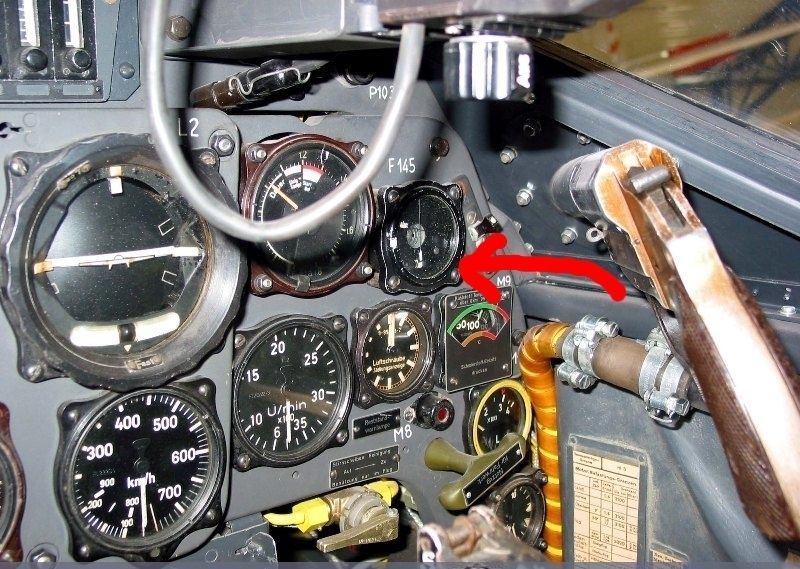
Seen in situ above in a ME
262
£ 295


|
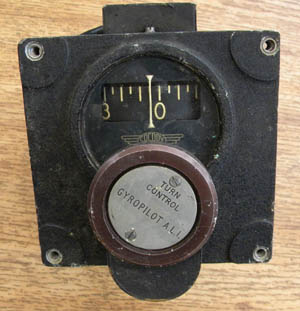
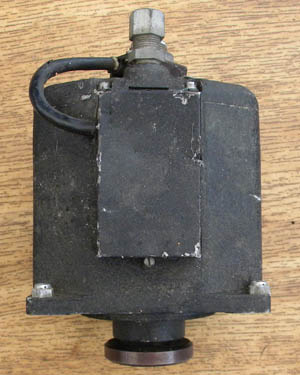 |
Directional
indicator (Instruments pg 7 directional indicators and Art
Horizon 3))
A directional indicator made by
Sperry used in
the Blind Flying panel of USAAF aircraft. This one is unusual in that it has a large knob as
seen in the picture left. In good original condition.
£155


|
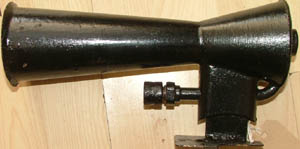
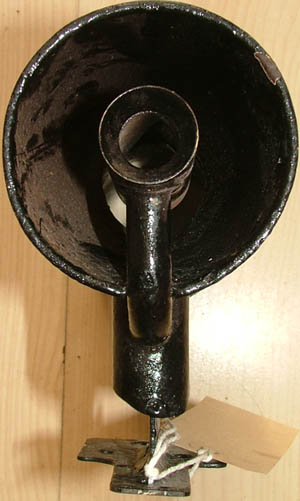 |
Venturi tube
(Instruments pg 7 directional indicators and Art Horizon 5)
Venturi tube as used on
aircraft during WW2 which did not have an engine-driven
vacuum pump to operate gyro direction indicators etc.
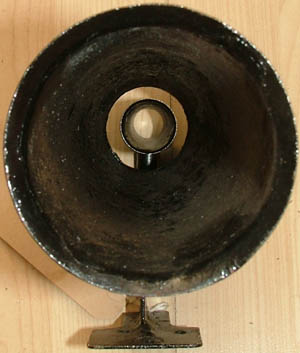
£165


|
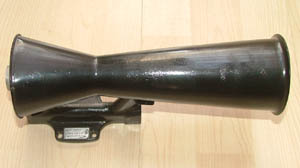
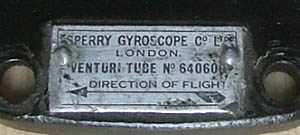
Click on
the pictures to enlarge them.
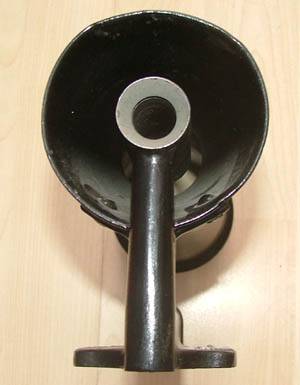
|
Venturi tube
1940
(Instruments pg 7 directional indicators and Art Horizon 6)

Serial No
2875/40, which dates it as 1940 vintage.
Seen under in
situ on a very early Hurricane MK I
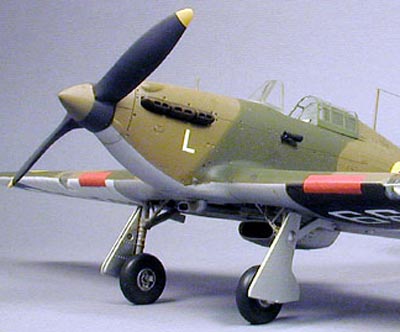
Battle of Britain dated Venturi tube
as used on
aircraft during WW2 which did not have an engine-driven
vacuum pump to operate gyro direction indicators etc. The front trumpet has
been pushed out of round slightly, and is thin gauge, so
will easily push out, otherwise it is in perfect condition
with no corrosion or damage.
Length 10" Diameter 3"
£185


|
|
Click on
the pictures to enlarge them.
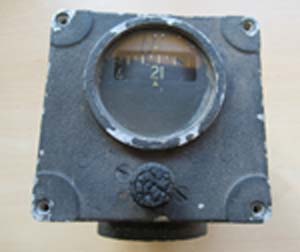
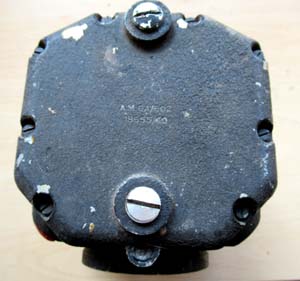 |
Directional
indicator Dated 1940 (Instruments pg 7 directional indicators
and Art Horizon 7)
This is a
directional indicator the knob on the front is unusually
made of rubber which has deteriorated over the years however
the mechanism still functions smoothly.
The
connection for this instrument is as the bottom as apposed
to the rear as on the classic type Mk I Gyro.
6A/602
Dated 1940 £195


|
|
Click on
the pictures to enlarge them.

 |
Directional
Gyro MK I dated 1941 (Instruments pg 7 directional indicators
and Art Horizon 8)
This is a
directional Gyro MK I it has a crinkle paint finish but has
some paint loss as can be seen in the pictures. The
mechanism works smoothly and it comes with its original
mounting screws in an attached packet.
6A/1297
Dated 1941 and
service date of 1953. £185


|
|
Click on
the pictures to enlarge them.
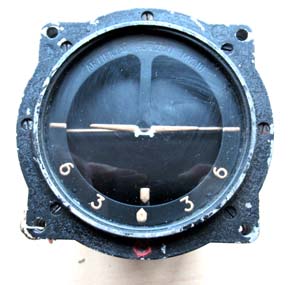 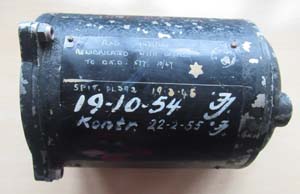
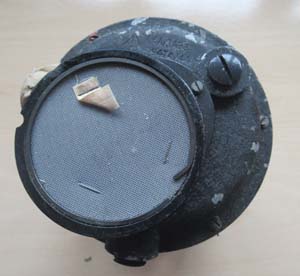 |
Spitfire PL 952 Mk IB
Artificial Horizon (Instruments pg 7 directional indicators
and Art Horizon 10)
This is a fairly
unique find as this instrument has the serial number of the
Spitfire it was fitted to PL 952. This came with a
collection of instruments all fitted to Spitfires from
Denmark
PL 952 was
a reconnaissance Spitfire built in 1944 and served first at
RAF Benson and at some point was sold to the Royal Denmark
Air force.
PL952 PRXI
ALD M70 9MU 2-10-44 Benson 9-10-44 541Sq 19-10-44 6MU
13-9-45 SOC SOC 1-4-46
It is dated 1944 and it has a service dates of 1944,
1946, 1947, 1954 and 1955 both of the latter being done in
Denmark.
The Danish armed forces received 38 surplus
Supermarine Spitfire H. F. Mk. IXE[7] and
3 P.R.Mk. XI in 1947-48[8]
plus four additional airframes for ground instruction, which
were operated by units of the Hærens Flyvertropper and
Marinens Flyvevæsen prior to their merger, and by the Royal
Danish Air Force until 1956 when the last examples were
retired and all but two scrapped.
Mk.1B Artificial Horizon.
It has the Reference Number
6A/1498
£275


|
|
Click on
the pictures to enlarge them.
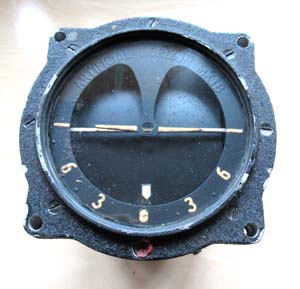
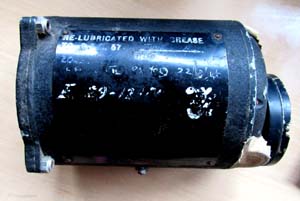
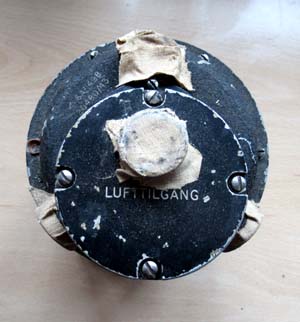
|
Artificial Horizon
MK IB (Instruments pg 7 directional indicators
and Art Horizon 10A)
This
instrument again came from Denmark it was originally made in
1943 and has a service date of 1946 and another which is
obscured.
It's
most likely this came from a Spitfire sold to Denmark but
there is no serial number visible..
Mk.1B Artificial Horizon.
It has the Reference Number
6A/1498
Out of stock |
|
Click on
the pictures to enlarge them.
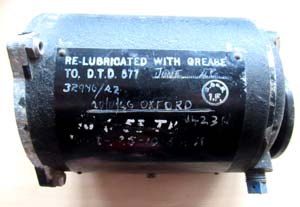
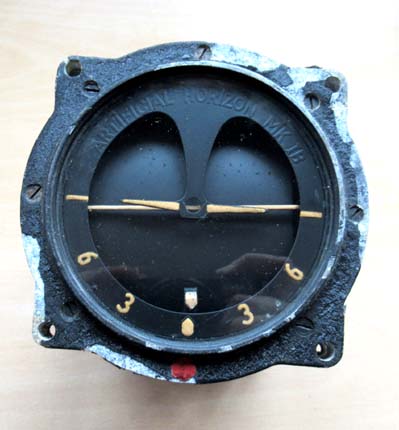
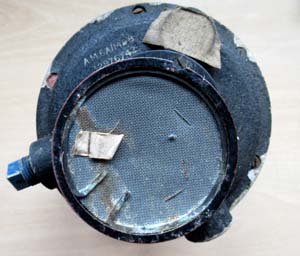
|
Oxford Artificial Horizon
MK IB (Instruments pg 7 directional indicators
and Art Horizon 10B)
This
instrument again came from Denmark it's
1942 and has a service date of 1946 ,1953 and another which
I cannot read.
This one is
marked Oxford but the aircraft serial is not visible.
£95


|
|
Click on
the pictures to enlarge them.
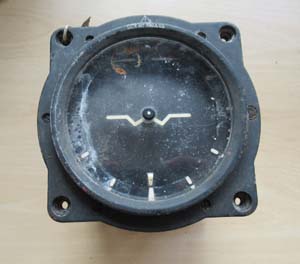
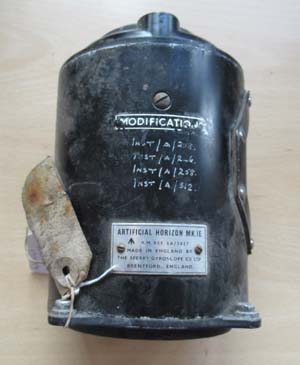
|
Artificial Horizon MK I E (Instruments pg 7 directional indicators
and Art Horizon 11)
Later version
of the artificial horizon a MK I E model dated 1955 and used
in early Jets. the glass has fogged in places but
could be removed and cleaned by a suitably qualified person.
£55


|
|
Click on
the pictures to enlarge them.
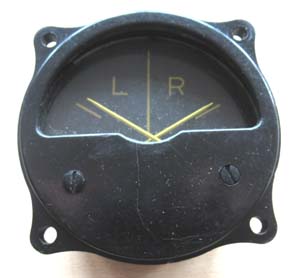
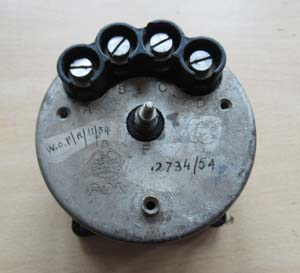
|
L/R Beam
Approach Indicator (Instruments pg 7 directional indicators
and Art Horizon 11B)
Here we have a L/R Beam approach Indicator It has the Reference Number
10Q/2 it has a loose glass.
This was
used in conjunction with the Marconi R1155 Radio Receiver
It was mounted in the
Cockpit of the Lancaster next to the DR Compass
This was used on a variety
of WW2 Aircraft
Seen in
Situ Below in the Lancaster Panel
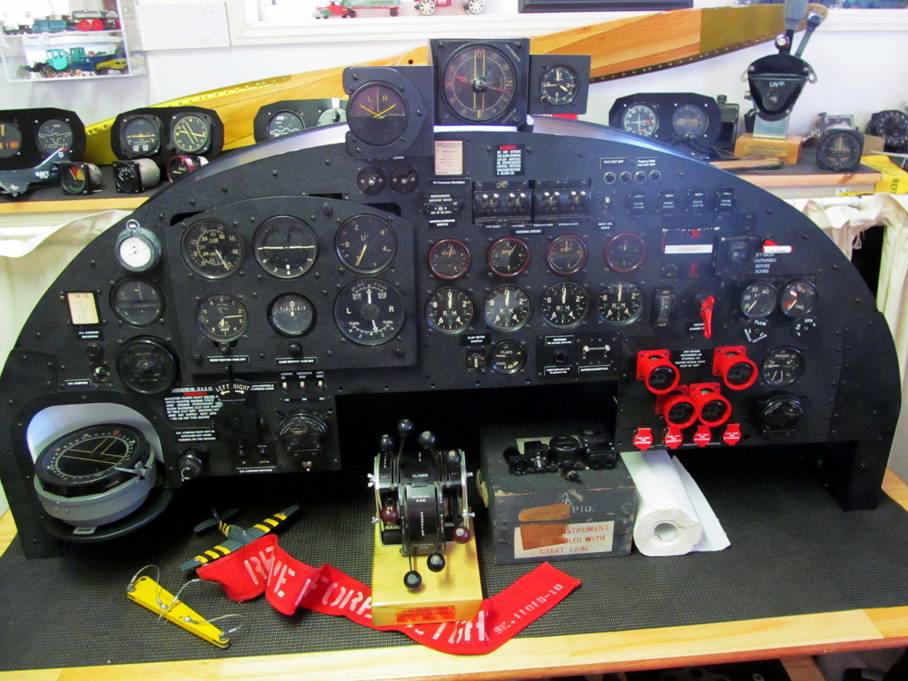
£115


|
|
Click on
the pictures to enlarge them.
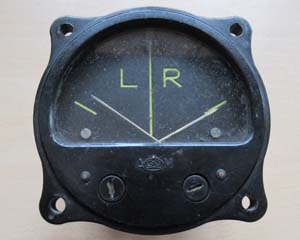
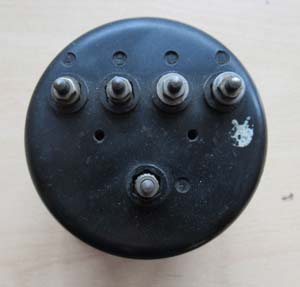
|
L/R Beam
Approach Indicator (Instruments pg 7 directional indicators
and Art Horizon 11C)
Here we have a L/R Beam approach Indicator It has the Reference Number
10Q/2 .
This was
used in conjunction with the Marconi R1155 Radio Receiver
It was mounted in the
Cockpit of the Lancaster next to the DR Compass
This was used on a variety
of WW2 Aircraft
Seen in
Situ Below in the Lancaster Panel
£125


|
|
Click on the
picture to enlarge
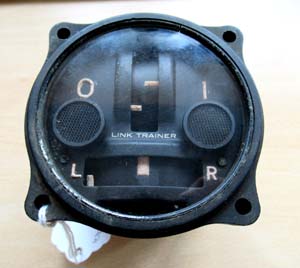
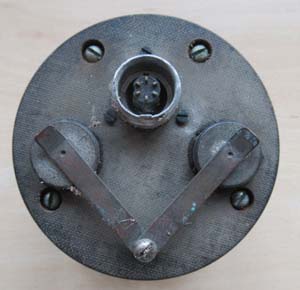
|
Link Trainer
Beam approach homing indicator (Instruments pg 7 directional indicators
and Art Horizon 14)
Here we have a beam approach homing indicators for a link
trainer used to train Pilots its almost identical to the
ones used in Lancasters and probably other RAF Bombers so
would be fine for display in a panel.. Beams were sent
out from England which allowed the aircraft to navigate.
This particular one in in very nice clean original
condition.
£125


|
|
Click on the
pictures to enlarge
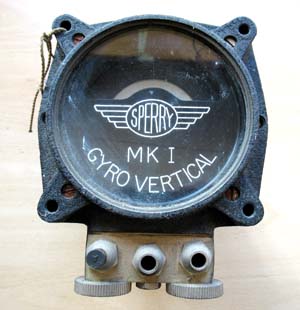
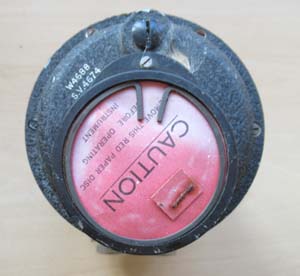
|
Sperry Mk Gyro for link trainer (Instruments pg 7 directional indicators
and Art Horizon 12)
Here we have a really nice Sperry Mk I Gyro this was used
in a link trainer used to train Pilots how to navigate. Its
in good condition with all the intakes sealed.
£95


|
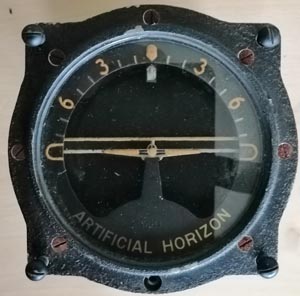 Click on
the pictures to enlarge them.
Out of stock
more wanted please
contact me
|
Mk I Dated 1942
Artificial Horizon (Instruments pg 7 directional indicators
and Art Horizon 9)
6A/599
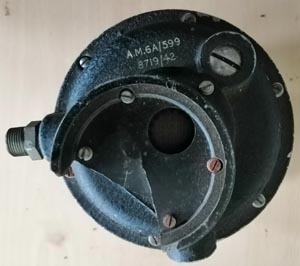
Dated 1942
A really nice
early Artificial horizon used in
practically all types of RAF wartime aircraft in good
original condition.
The MK Is are
now extremely hard to find
|
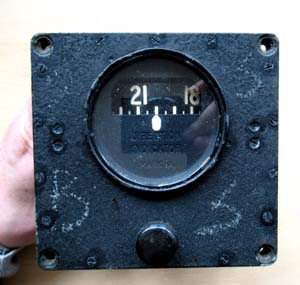
Out of stock more wanted please
contact me
|
Directional
indicator MK IA (Instruments pg 7 directional indicators and Art
Horizon 4B)
Directional Gyro used in Spitfire blind flying panels and
practically all other Wartime RAF aircraft. It has Reference
Number 6A/1299 . Nice original
condition.
This is a
nice early example dated 1943
Click on
the pictures to enlarge them.
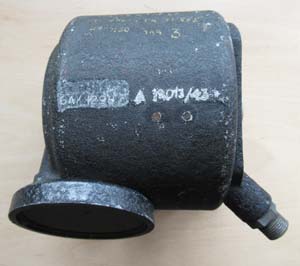 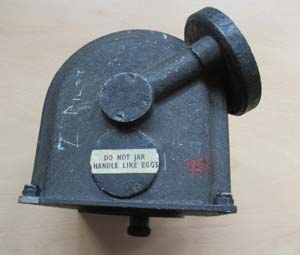 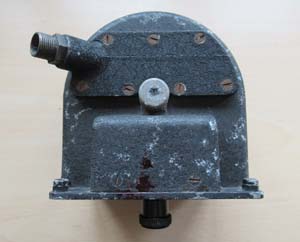 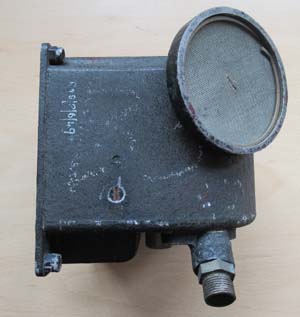
|
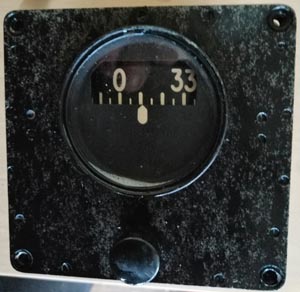
Out of stock |
Directional
indicator (Instruments pg 7 directional indicators and Art
Horizon 4)
Directional Gyro used in Spitfire blind flying panels and
practically all other Wartime RAF aircraft. It has Reference
Number 6A/1298 and has a service date of 1951. Nice original
condition.
Click on
the picture's to enlarge them.
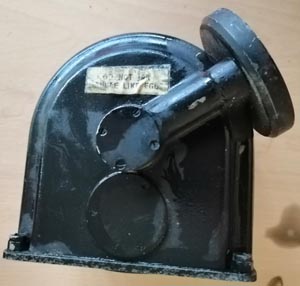
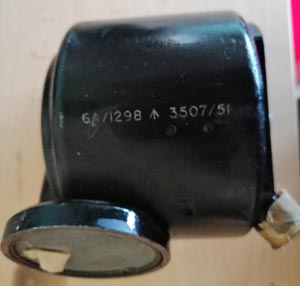
|
|
|
Page 1 Instruments Home.
Page 2
Airspeed Indicators.
Page
3 Altimeters.
Page 4 Boost Gauges.
Page 5 Clocks and Compasses.
Page 6 Climb and Descend.
Page 7 Directional Indicators
Page 8 Fuel Gauges
Page 9 Flap Indicators
Page 10 Brake Gauges
Page 11 Oxygen Gauges
Page 12 Pressure
Gauges
Page13 Revolution Counters
Page 14 Temperature Gauges
Page 15 Turn and Slip and Artificial
Horizon
Page
16 Undercarriage Indicators
Page 17 Trim Gauges
Page 18 Volt and Ammeter |
